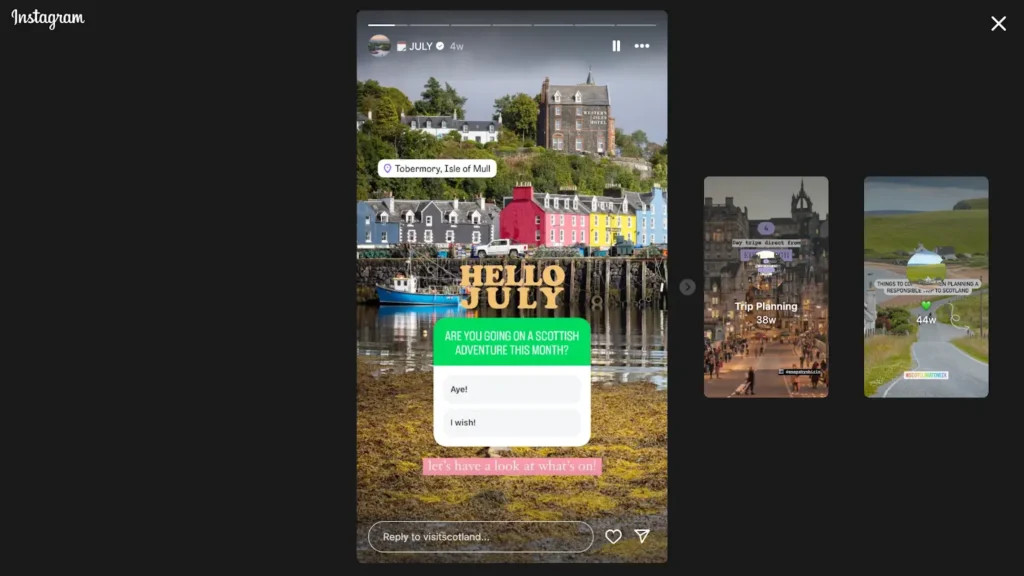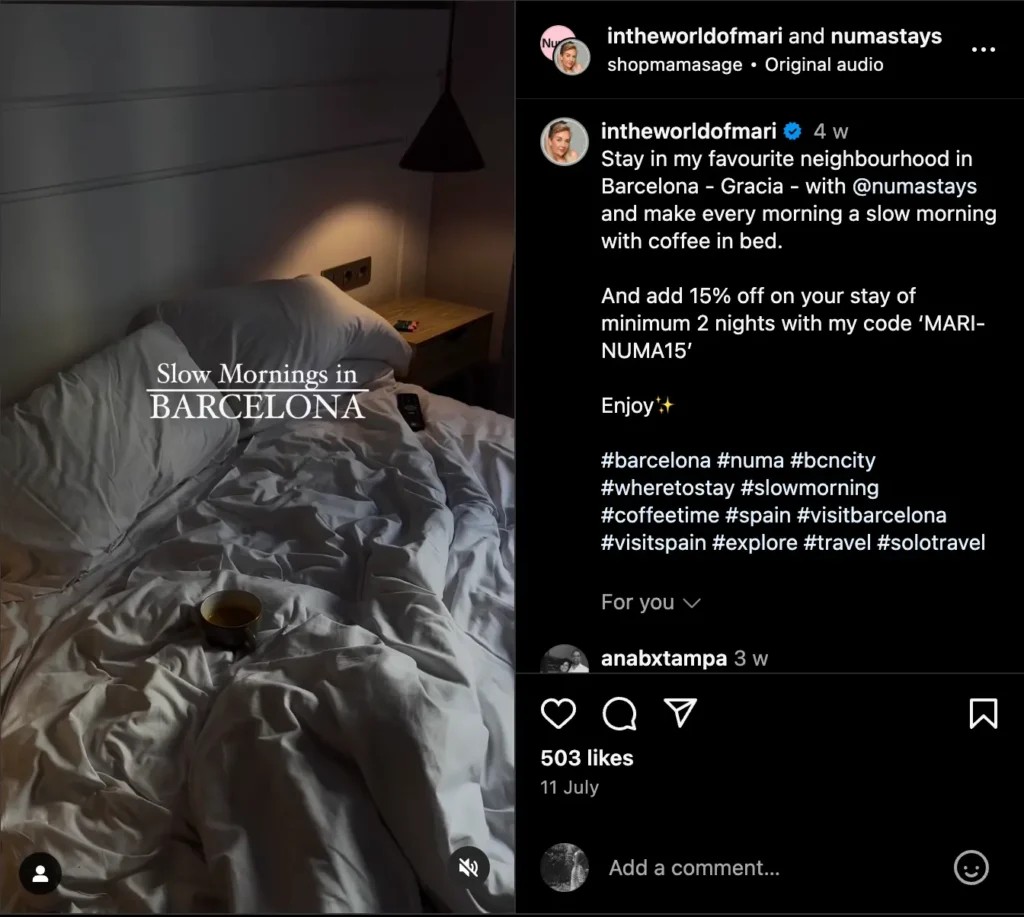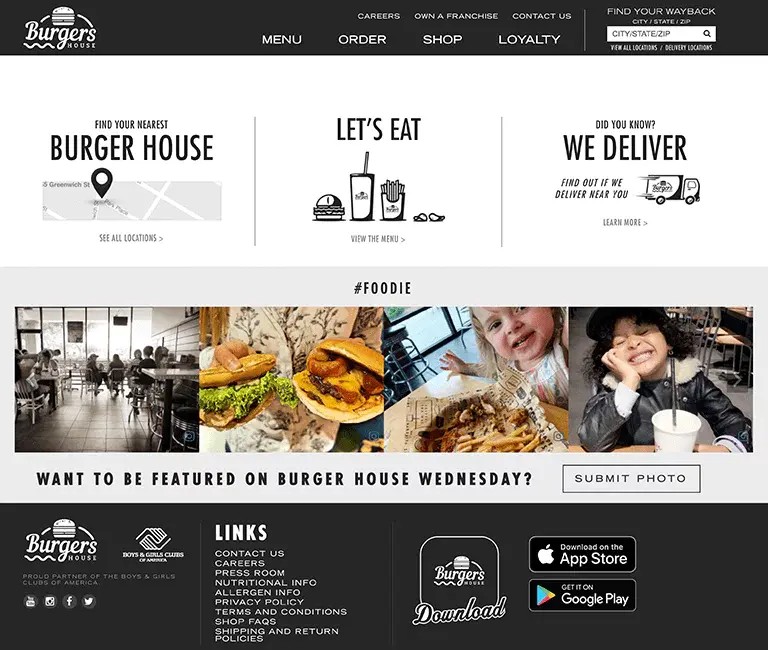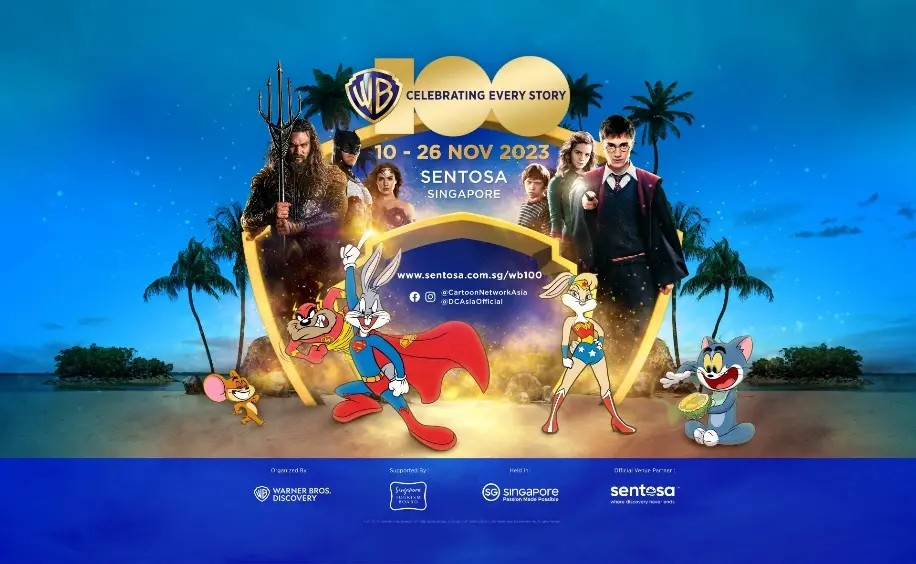Are you looking to elevate your tourism business and attract more travelers to Vietnam? In the dynamic world of travel, effective marketing is crucial. SIXT.VN offers comprehensive solutions tailored to the Vietnamese tourism landscape, helping you create unforgettable experiences for your customers. Discover how to enhance your travel marketing, craft compelling tourist advertising, and implement successful travel promotional strategies.
1. What is the Role of Tourism Marketing?
Tourism marketing plays a vital role in shaping memorable travel experiences, promoting local areas, and building credibility for tourism brands. It goes beyond simply driving sales; it’s about creating lasting impressions and fostering trust.
Tourism marketing aims to:
- Create Memorable Experiences: By providing engaging content, practical tips, and seamless booking options, tourism marketing helps travelers plan their perfect trip from start to finish.
- Promote Your Local Area: Effective tourism marketing showcases your local area, fostering economic growth and a positive reputation that benefits all local businesses.
- Build Credibility for Your Brand: By creating unique content and building trust with visitors, tourism marketing positions your business as a reliable brand that offers top-notch service and experiences.
2. How to Create a Compelling Content Marketing Strategy?
Crafting a compelling content marketing strategy is essential for connecting with your audience on an emotional level and showcasing the unique attractions of Vietnam. Storytelling helps your audience create a connection with a place before they’ve even booked tickets. And there’s no better way to tell a compelling story than with content marketing.
Here’s how you can develop a content strategy that resonates with potential travelers:
- Highlight Local Experiences: Showcase the unique activities, hidden gems, and cultural experiences that make Vietnam special. For example, feature stories from local artisans, chefs, or guides in your region to add a human touch to your marketing.
- Diversify Content Formats: Use a mix of blog posts, vlogs, high-quality images, and podcasts to cater to different audience preferences. Creating an effective content marketing process enables you to tailor your content to match what your audience is looking for.
- Deliver High-Quality Content: Ensure your content adds real value by providing up-to-date information and positioning your brand as an expert in Vietnamese travel. According to the Vietnam National Administration of Tourism, providing valuable information increases customer engagement by 40%.
3. How Does Personalized Marketing Pique Customers’ Interest?
Personalized marketing caters to the unique preferences and expectations of travelers, making them feel understood and valued, and encourages them to convert clicks into sales.
 Expedia
Expedia
To implement personalized marketing effectively:
- Understand Audience Segments: Gather in-depth data on your audience, including age, gender, location, interests, and travel behaviors.
- Use AI Tracking Tools: Leverage AI to collect data and tailor content based on individual preferences. Social media listening tools and online surveys are also useful for gathering insights.
- Serve Personalized Content: Deliver customized content across email and digital marketing channels to increase conversion rates and enhance customer satisfaction.
4. Why is SEO Important to Expand Your Reach?
Search Engine Optimization (SEO) ensures that your tourism business is easily discoverable by travelers searching for information and services online, capturing a significant portion of the market. According to a Statista survey, 86% of millennials believe it’s important to be able to book a trip entirely online.
To optimize your tourism marketing for SEO:
- Keyword Research: Identify relevant keywords and phrases that potential travelers are searching for, such as “Hanoi tours,” “Vietnam travel packages,” or “SIXT.VN airport transfer.”
- Optimize Website Content: Incorporate targeted keywords into titles, headers, meta descriptions, and website content to improve search engine rankings.
- Create High-Quality Blog Posts: Address common questions and interests of travelers by writing blog posts that use long-tail keywords related to Vietnamese travel.
- Build a User-Friendly Website: Ensure your website is easy to navigate, mobile-friendly, and loads quickly for a better user experience.
- Use Backlinks: Include links to authoritative sources in the travel industry (sparingly) to make your own marketing content more credible.
5. How Can Social Media Channels be Maximized?
Leveraging social media platforms effectively allows you to engage with your audience in real-time, share compelling visuals, and promote your tourism business to a wider audience.
 Instagram story
Instagram story
Here are some ways to maximize your social media channels:
- Use Instagram and Facebook Stories: Share real-time updates, behind-the-scenes looks, and special promotions with your audience.
- Engage with Your Audience: Respond to comments and DMs promptly to build relationships and foster a sense of community.
- Stay Updated on Trends: Regularly brush up on social media trends and updates to keep your social media marketing strategy fresh and interesting for your audience.
- Leverage Emerging Tools: From AI-generated stickers to immersive AR ads, there are loads of ways to spice up your social media content for more engagement.
6. How Does Influencer Marketing Help?
Collaborating with influencers can quickly build credibility and reach a wider audience, as influencers often have a dedicated following that trusts their recommendations. Influencer marketing involves collaborating with people that have a sizable following on social media, to promote your business. It’s a powerful tool that can help you build up credibility real fast, so it’s no surprise that it’s one of the most popular strategies for tourism marketing.
 Influencer marketing for tourism
Influencer marketing for tourism
To succeed with influencer marketing:
- Choose Relevant Influencers: Work with influencers that are popular among your target market and align with your brand values.
- Encourage Authentic Content: Allow influencers to create authentic content that showcases their genuine experience with your business or destination.
- Consider Micro-Influencers: Partner with nano or micro-influencers who have smaller but highly engaged followings for more personal and effective connections with their audience.
7. Why Should User-Generated Content Be Encouraged?
User-Generated Content (UGC) provides authentic social proof and fosters a sense of community, encouraging potential travelers to trust and engage with your brand.
 User generated content
User generated content
Here’s how to encourage UGC:
- Create Photo Opportunities: Set up aesthetic photo walls or murals at popular spots to encourage visitors to take and share photos.
- Organize Contests: Host photo contests where visitors share their best travel photos from your destination for the chance to win a prize.
- Use Specific Hashtags: Encourage customers to use a specific hashtag when sharing content related to your business or destination.
8. How Do Virtual Reality Tours Engage Audiences?
Virtual Reality (VR) tours allow potential travelers to experience a destination or activity before booking, creating excitement and helping them make informed decisions.
Benefits of VR tours:
- Provide Immersive Experiences: Offer virtual tours of hotels, attractions, and activities that can be enjoyed through web browsers on computers, mobiles, or tablets.
- Enhance Booking Decisions: Help customers make more informed booking decisions by giving them a realistic preview of what to expect.
- Create Excitement: Generate a sense of anticipation and excitement about the adventures you provide.
9. How Important Are Customer Reviews?
Customer reviews significantly influence booking decisions, as potential travelers rely on them to assess the quality and trustworthiness of a business. According to Trustpilot, 89% of global consumers check online reviews as part of their buying journey.
To leverage customer reviews effectively:
- Encourage Reviews: Follow up with satisfied customers after their visit and make the review process easy.
- Highlight Reviews: Showcase positive reviews on your website and social media to build credibility and attract more bookings.
- Respond to Reviews: Address both positive and negative reviews to show that you value customer feedback and are committed to providing excellent service.
10. How Does Collaborating with Other Businesses Help?
Collaborative marketing allows you to cater to travelers’ diverse needs and support the growth of local businesses, creating a comprehensive and appealing tourism ecosystem.
 Singapore tourism board
Singapore tourism board
Strategies for collaboration:
- Pool Resources: Combine resources with other businesses to create a bigger budget for marketing content.
- Cross-Promote Services: Recommend other businesses on your website, social media platforms, and travel brochures.
- Create Joint Packages: Offer joint packages that include a variety of services and experiences, such as hotel stays, tours, and dining options.
11. What is Experiential Marketing?
Experiential marketing brings your brand to life through creative and engaging campaigns, leaving a lasting impression on potential travelers.
Examples of experiential marketing:
- Unique Campaigns: Create innovative campaigns that capture attention and generate media coverage.
- Interactive Experiences: Offer interactive experiences that allow potential travelers to engage with your brand in a memorable way.
- Pop-Up Events: Host pop-up events that showcase your destination and attract visitors.
12. What are the Benefits of Using SIXT.VN for Your Tourism Needs in Vietnam?
SIXT.VN offers a range of benefits for travelers exploring Vietnam:
- Convenient Airport Transfers: Start your journey stress-free with reliable and comfortable airport transfer services.
- Wide Range of Hotel Options: Choose from a variety of hotels to suit your budget and preferences.
- Expert Tour Packages: Discover Vietnam’s hidden gems with expertly crafted tour packages.
- Easy Flight Booking: Book your flights quickly and easily with competitive prices.
- Comprehensive Travel Solutions: Benefit from a one-stop platform for all your travel needs in Vietnam.
13. How to Develop a Tourism Marketing Plan that Attracts International Tourists?
Creating a tourism marketing plan involves several key steps to attract international tourists effectively.
- Market Research: Conduct thorough research to understand the target audience, their preferences, and travel behaviors. According to the Vietnam National Administration of Tourism, understanding your audience is the first step to effective marketing.
- Set Clear Objectives: Define specific, measurable, achievable, relevant, and time-bound (SMART) goals for your marketing efforts.
- Identify Unique Selling Points (USPs): Determine what makes your tourism business or destination unique and appealing to international tourists.
- Develop a Marketing Mix: Create a comprehensive marketing mix that includes content marketing, personalized marketing, SEO, social media, influencer partnerships, and experiential marketing.
- Set a Budget: Allocate resources for each marketing activity and track expenses to ensure cost-effectiveness.
- Implement and Monitor: Execute the marketing plan and continuously monitor performance using analytics tools to measure results and make adjustments as needed.
14. How Can SIXT.VN Help Overcome the Challenges Faced by International Tourists in Vietnam?
SIXT.VN addresses the common challenges faced by international tourists in Vietnam by providing:
- Language Support: Multilingual support to assist tourists with their inquiries and bookings.
- Reliable Transportation: Safe and convenient airport transfers and transportation services.
- Trusted Accommodation: A curated selection of trusted hotels and accommodations.
- Curated Experiences: Carefully designed tour packages that showcase the best of Vietnam.
- Local Expertise: Expert advice and recommendations to help tourists plan their trips.
15. What Current Trends are Shaping Tourism Marketing?
Several trends are currently shaping tourism marketing, including:
- Sustainability: Eco-friendly and responsible travel options are increasingly popular among tourists.
- Technology Integration: Mobile apps, AI-powered chatbots, and virtual reality are enhancing the travel experience.
- Personalization: Customized travel experiences tailored to individual preferences are in high demand.
- Authenticity: Travelers seek genuine and immersive cultural experiences.
- Health and Safety: Enhanced hygiene and safety measures are crucial for attracting tourists.
16. How to Use Data Analytics to Improve Tourism Marketing Strategies?
Data analytics can significantly improve tourism marketing strategies by providing insights into customer behavior, preferences, and trends.
Steps to use data analytics:
- Collect Data: Gather data from various sources, including website analytics, social media, customer surveys, and booking platforms.
- Analyze Data: Use analytics tools to identify patterns, trends, and correlations in the data.
- Segment Your Audience: Divide your audience into segments based on demographics, interests, and travel behavior.
- Personalize Marketing Messages: Tailor marketing messages to each segment to increase engagement and conversion rates.
- Optimize Campaigns: Use data insights to optimize marketing campaigns, improve targeting, and allocate resources effectively.
17. How Can Small Tourism Businesses Compete With Larger Companies in Marketing?
Small tourism businesses can compete with larger companies by:
- Niche Marketing: Focus on a specific niche market or target audience to differentiate themselves from larger competitors.
- Personalized Service: Provide personalized service and attention to detail that larger companies cannot match.
- Community Engagement: Build relationships with local communities and promote sustainable tourism practices.
- Social Media Marketing: Leverage social media to connect with customers, share authentic stories, and build brand awareness.
- Collaborative Partnerships: Partner with other small businesses to offer joint packages and expand reach.
18. What Should Be Included in an Effective Landing Page for a Tourism Business?
An effective landing page for a tourism business should include:
- Compelling Headline: A headline that captures attention and communicates the unique value proposition.
- High-Quality Visuals: Stunning images and videos that showcase the destination or experience.
- Clear Call to Action (CTA): Prominent CTAs that encourage visitors to book, inquire, or learn more.
- Concise Information: Succinct descriptions of the key features and benefits of the tourism product or service.
- Customer Testimonials: Positive reviews and testimonials that build trust and credibility.
- Easy Navigation: A user-friendly design that makes it easy for visitors to find what they are looking for.
19. How to Conduct a SWOT Analysis for Tourism Marketing?
A SWOT (Strengths, Weaknesses, Opportunities, Threats) analysis helps identify internal and external factors that can impact your tourism marketing efforts.
Steps to conduct a SWOT analysis:
- Strengths: Identify internal strengths that give your tourism business a competitive advantage.
- Weaknesses: Recognize internal weaknesses that may hinder your marketing efforts.
- Opportunities: Explore external opportunities that you can leverage to grow your business.
- Threats: Identify external threats that may pose challenges to your marketing efforts.
20. How Can SIXT.VN’s Services Contribute to the Success of a Travel Agency?
SIXT.VN’s services enhance the success of a travel agency by:
- Providing Reliable Services: Offering dependable airport transfers, hotel bookings, and tour packages.
- Enhancing Customer Satisfaction: Delivering high-quality services that meet and exceed customer expectations.
- Expanding Product Offerings: Providing a wider range of travel options to cater to diverse customer needs.
- Streamlining Operations: Simplifying the booking process and reducing administrative tasks.
- Increasing Revenue: Driving more bookings and generating additional revenue for the travel agency.
FAQ About Marketing Tourism Industry
1. What are the most effective digital marketing strategies for the tourism industry?
SEO, content marketing, social media marketing, and personalized email campaigns are highly effective digital strategies.
2. How can I measure the ROI of my tourism marketing campaigns?
Track key metrics such as website traffic, conversion rates, booking volumes, and customer satisfaction scores.
3. What role does mobile marketing play in the tourism industry?
Mobile marketing is crucial for reaching travelers on the go, providing real-time information, and facilitating bookings.
4. How can I use video marketing to promote my tourism business?
Create engaging videos that showcase your destination, highlight unique experiences, and share customer testimonials.
5. What are the key elements of a successful tourism website?
User-friendly design, high-quality visuals, clear navigation, mobile optimization, and secure booking options are essential.
6. How can I use email marketing to attract and retain tourism customers?
Send personalized emails with travel tips, special offers, and booking reminders to keep customers engaged.
7. What is the importance of online reputation management in the tourism industry?
Online reputation management is critical for building trust, attracting customers, and addressing negative reviews.
8. How can I use virtual tours to enhance my tourism marketing efforts?
Offer virtual tours of your destination or property to give potential customers a realistic preview and increase interest.
9. What are the best practices for using social media in the tourism industry?
Post engaging content, interact with followers, run contests, and use relevant hashtags to build brand awareness.
10. How can I create a successful tourism marketing campaign on a limited budget?
Focus on cost-effective strategies such as social media marketing, content creation, and collaborative partnerships.
Ready to take your tourism business to the next level? Contact SIXT.VN today to learn more about our services and how we can help you attract more travelers to Vietnam.
Address: 260 Cau Giay, Hanoi, Vietnam
Hotline/Whatsapp: +84 986 244 358
Website: SIXT.VN
With SIXT.VN, you can transform your tourism marketing efforts and provide unforgettable experiences for travelers visiting Vietnam.



